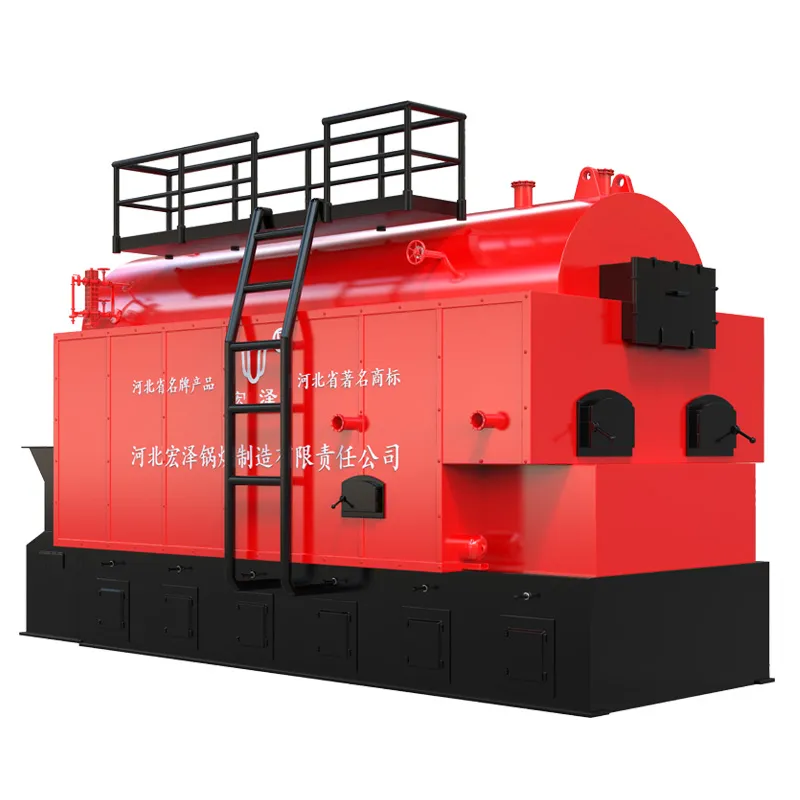
Nov . 16, 2024 22:14 Back to list
different types of steam boilers
Different Types of Steam Boilers
Steam boilers are crucial components in many industrial processes, residential heating, and power generation applications. They convert water into steam through the application of heat, which can then be used for various purposes, such as driving turbines for electricity generation, heating buildings, or facilitating chemical processes. There are several types of steam boilers, each designed to meet specific operational requirements and efficiency standards. This article explores the main types of steam boilers, their functioning mechanisms, and their applications.
1. Fire-Tube Boilers
Fire-tube boilers are one of the most common types of steam boilers. In these systems, hot gases from a combustion source pass through tubes that are surrounded by water. As the gases flow through the tubes, they transfer heat to the water, converting it into steam. The simplicity of design and ease of operation make fire-tube boilers popular in smaller industrial and commercial applications. They are typically low-pressure systems, suitable for heating and processing tasks that do not require high steam pressures.
Water-tube boilers, in contrast to fire-tube boilers, circulate water through tubes that are heated by the combustion gases outside the tubes. This design allows water-tube boilers to operate at higher pressures and generate steam more rapidly, making them ideal for large-scale industrial applications and power generation. These boilers are more efficient than fire-tube boilers and can handle a wide range of steam demands, from low to very high pressure.
3. Electric Steam Boilers
different types of steam boilers

Electric steam boilers use electricity to generate heat, which is then used to produce steam. These boilers are typically compact and can be installed in locations where space is limited. They offer a clean alternative to fossil fuel-based systems and are particularly appealing in areas where electricity is inexpensive or where emissions regulations are strict. However, their operating costs can be higher compared to gas or oil-fired boilers, particularly in areas with high electricity prices.
4. Biomass Boilers
Biomass boilers utilize organic materials, such as wood pellets, agricultural waste, or dedicated energy crops, as fuel to generate steam. These systems are gaining popularity due to their sustainability and lower carbon footprint compared to fossil fuel boilers. Biomass boilers can be designed to operate like fire-tube or water-tube systems, and they often require specialized handling and storage systems for the fuel. They are particularly advantageous in areas where biomass sources are readily available.
5. Specialty Boilers
There are various specialized steam boilers designed for specific applications or industries. For instance, modular boilers can be easily scaled up or down based on demand, allowing for flexibility in operations. Additionally, waste heat recovery boilers utilize exhaust gases from industrial processes to generate steam, improving overall energy efficiency. These specialty boilers play a vital role in achieving efficiency and sustainability in various sectors.
Conclusion
Steam boilers are integral to many sectors, providing essential thermal energy for heating, processing, and energy generation. Each type of steam boiler—fire-tube, water-tube, electric, biomass, and specialty—has specific advantages and applications suited to different industrial and commercial needs. Understanding these differences enables organizations to select the right boiler system that meets their operational requirements, efficiency goals, and environmental considerations. As technology continues to advance, the development of more efficient, sustainable, and eco-friendly boilers will likely enhance the role of steam systems in the future. Ultimately, the choice of steam boiler will depend on several factors, including the scale of operation, the type of fuel used, and the specific requirements of the application.
-
Efficient Biomass Fired Hot Water Boiler | AI Heating Solution
NewsAug.01,2025
-
High-Efficiency Gas Thermal Oil Boilers | HPT Models
NewsJul.31,2025
-
Oil Fired Hot Water Boilers Sale - High Efficiency & Affordable
NewsJul.31,2025
-
High-Efficiency Commercial Oil Fired Steam Boiler for Industry
NewsJul.30,2025
-
High-Efficiency Biomass Fired Thermal Oil Boiler Solutions
NewsJul.30,2025
-
High Efficiency Gas Fired Thermal Oil Boiler for Industrial Heating
NewsJul.29,2025
Related PRODUCTS






















